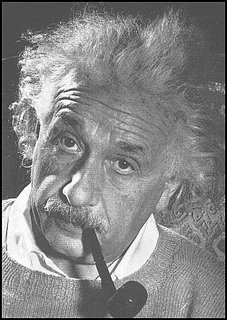American Prometheus - Kai Bird & Martin Sherwin

'I am become death, the destroyer of worlds.' - J. Robert Oppenheimer; words he is said to have uttered when he witnessed the test atomic bomb detonation in the New Mexico desert at the Trinity nuclear explosion site on 16 July 1945 - this quote originally came from the Bhagavad Gita
Very interesting reading.
This is a compelling story of ambition, intrigue, jealousy and the attendant devastation visited upon J. Robert Oppenheimer ('JRO' aka 'Oppie') - whose direction and guidance brought about the most destructive weapon available to Humanity. Oppenheimer's contribution earned him the name, 'father of the Atomic Bomb.'
This book traces Oppenheimer's life, documenting a series of personal blunders and mistakes he made along the way. They ultimately proved to be as destructive for his career as the weapon of mass destruction he helped to create. It is a captivating story about the acrimony and alienation he cultivated among his rivals because of the Bomb project.
Oppenheimer was eloquent, quick-witted and brilliant in spotting critical nuance. He had a great capacity for assimilating information and creating a collaborative environment which encouraged others to reach greater intellectual accomplishments as a result. Despite his brilliance, he also had an intolerant streak for intellectual laziness. Recipients of his derisive, caustic responses perceived him as vainglorious and arrogant. While he engendered deep loyalties and profound respect from the majority of people he made contact with, his incisive criticisms created lifetime enemies as well. For at least two, their hatred for JRO became a life's ambition with total commitment to undermining and destroying his character.
"A man that studieth revenge keeps his own wounds green" - Francis Bacon, Poem 'Of Revenge'
I never particularly liked Edward Teller - leader of the Hydrogen bomb development - I dislike him even more after reading this book. I recall hearing him lecture at the University of New Mexico back in the early eighties. By then, he was an old man and had come around to Oppie's thinking regarding Nuclear proliferation. His rhetoric had softened and he spoke more like a pacifist and not the war hawk of his earlier manhood. He was traveling the University circuit as a visiting lecturer so, I felt fortunate to sit in the lecture hall as he delivered his thoughts on the Nuclear Age.
As a student of history, I was aware of his involvement in Oppenheimer's fall from national grace. But, I was never cognizant of what lengths he went to in order to advance his own cause - developing the H-Bomb. It is evident the slight he felt when Oppie flatly rejected his efforts to develop a bomb 1000 times more powerful than those detonated in Japan never let Teller rest until his ego was assuaged - first with detonation of the H-bomb and finally - in contributing to Oppie's political demise by testifying against him.
Owing to philosophical differences with Teller, Oppenheimer opposed advancement of H-Bomb development - presciently fearing a nuclear arms race with the Russians would ensue. He called for transparency and world regulation of Nuclear Armaments as a means of avoiding wholesale destruction of life due to the indiscriminate destructive capacity of nuclear weaponry. He expressed serious doubts about the destructive power of such a weapon after having come to the realization that the bombings of Hiroshima and Nagasaki were essentially strategic decisions made by President Truman who wished to effect an unconditional surrender from Japan before the Russians had an opportunity to become involved and thus, assert their influence over Japan, and the pacific Corridor's post-war fate. The Japanese were ready to meet the US' terms for unconditional surrender. Nonetheless, Truman ordered the Atomic bombing anyway.
Unfortunately, Teller's ambitions dovetailed with American businessman and politico, Lewis Strauss who - like Teller was a friend-turned-enemy after tangling with the eminent Scientist. Together, Edward and Lewis made Oppenheimer's character assassination their life's ambition. Though separate and apart from eachother, both colluded with the FBI's Director, J. Edgar Hoover and ultra Right-Wing war hawks to thwart Oppenheimer's influence over developing the nascent American Nuclear arms policy by precipitating cancellation of his security clearance.
They did so by questioning his political allegiance to America - a feat accomplished by inciting fear of Communism, using personal smear tactics and manipulating the legal process under the guise of national security.
Neither Teller nor Strauss however, came away unscathed for their acrimonious efforts. History set the record straight - within their lifetimes. Their underlying motives came to light and they suffered the same retribution brought about by their zeal to destroy Oppie. Teller became a pariah in the scientific community and Strauss' national career came to an end when his flagrant disregard for Oppenheimer's right to due process was exposed in relatively short order after the hearings concluded and the decision was made to pull Oppie's security clearance.
Like the bomb which Oppenheimer guided into creation, political antipathy reached a critical mass for destruction of his public persona at the height of the Red Scare. The books title is appropriate as it makes reference to the Greek mythological Titan, Prometheus who stole fire from the Gods and gave to Humanity. The price for his deed was to suffer eternal condemnation of being lashed to huge stone and having his liver completely eaten away by an great eagle. According to the story, Prometheus' cycle self replicates daily because his liver regenerates every night.
Symbolically, Oppie's fate was the same. He endured never-ceasing scrutiny. despite his innocence, the Liberal-thinking, socially conscious scientist's name was forever tied to Communism. His efforts to inject rationality into the debate for arms control never came to fruition. This intellectual giant who had unleashed nuclear power - the explosive core energy - of the sun to mankind was doomed to suffer the same metaphorical fate as the mythological Greek Titan, Prometheus. For J. Robert Oppenheimer, the albatross of communism was forever tied to him - and his personal character was cyclically destroyed and regained for the rest of his life because of the Republican war hawks.
This book was a fascinating character study of a man who was brought down by people who, being more politically astute never compared to the man in intellectual prowess.
My Mom has a Spanish saying that translates, "Even for the tallest pine, there is an axe." Oppie's story is a sober reminder of this. I suppose there is another important lesson to be learned:
"I've learned that people will forget what you said, people will forget what you did, but people will never forget how you made them feel." - Maya Angelou, poet
The story is worth re-visiting in light of the recently past administration of George W. Bush & Company which pushed the limits of executive power and used such tactics from the past to destroy political enemies during the 42nd president's tenure in office.
It is my hope that Oppenheimer's history serves as warning for future generations to recognize ambitions of ideologues who abuse position and power. That we remain vigilant for those who seek to settle vendettas invoking false appearances of patriotism and national security.
It is a lesson all of our great leaders such as President Obama can benefit from because it was lesson that Oppenheimer was forced to learn the hard way; regardless of how tempting, never deny a person - either by action or word - his dignity or respect.
Oppie himself felt that clearing his name had come, 'too little, too late,' posterity has nonetheless cleared Robert Oppenheimer of the communist smears attached to him during the McCarthy era.
This book's title of 'American Prometheus' is apropos for this brilliant, compassionate, forward-thinking and highly controversial historical figure.




1 Comments:
I always enjoy reading your posts -
Post a Comment
<< Home